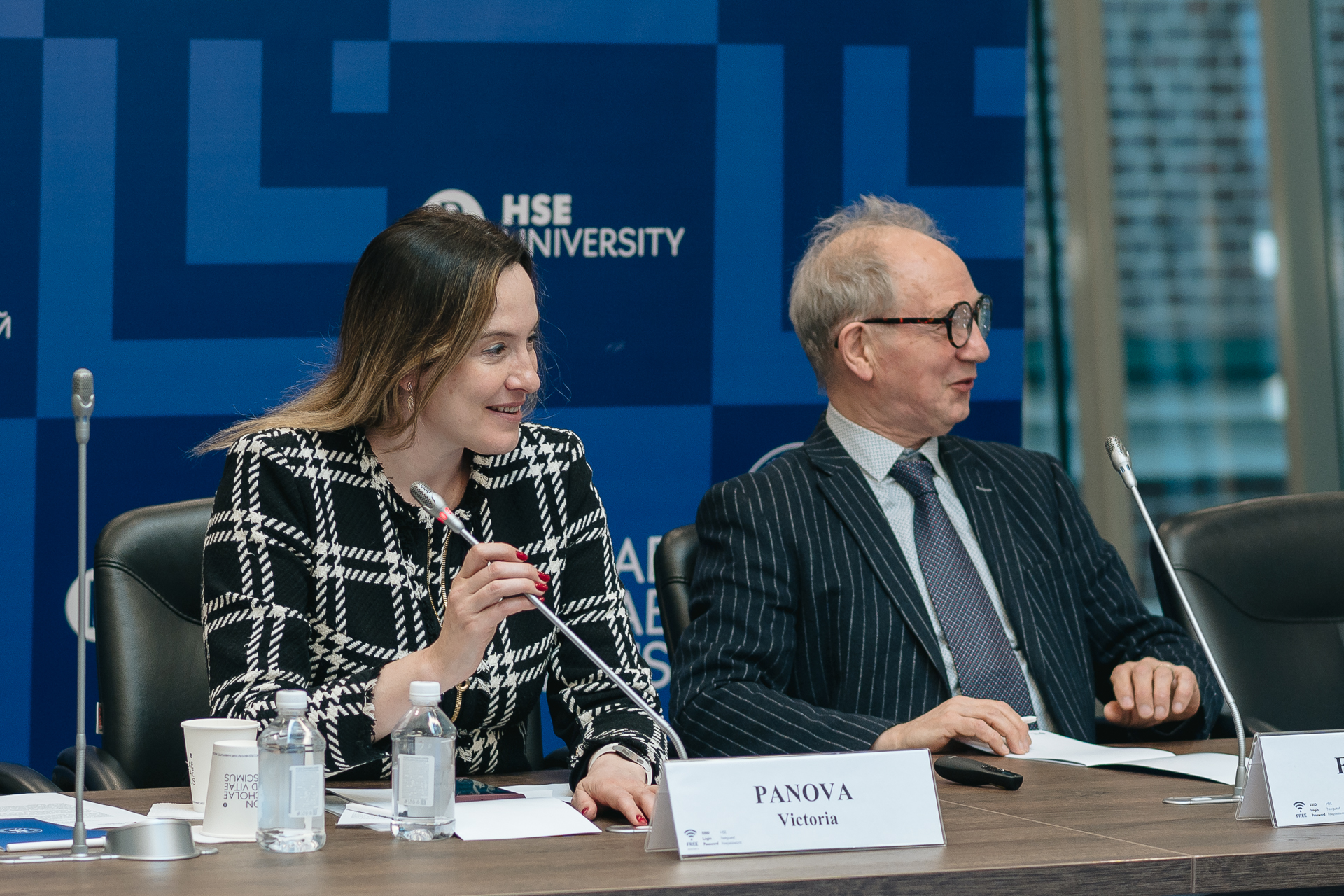Intellectual Property Issues in the Framework of BRICS Discussed at HSE University
On April 8, a roundtable discussion entitled ‘Intellectual Property on the Rise: How to Maximize Its Positive Impact and Avoid Hazards’ took place at HSE University in Moscow. The participants included Victoria Panova, HSE Vice Rector and Head of the BRICS Expert Council–Russia, and Alan Freeman, Co-Director of Geopolitical Economy Research Group at the University of Manitoba; Secretary of Geopolitical Economy Research and Education Trust; Co-Editor of Geopolitical Economy Book series, Manchester University Press.
Intellectual property is a key element of progress, which is used to turn ideas into real assets that are capable of improving the quality of life and solving the most pressing global problems. According to the World Intellectual Property Organization (WIPO), about two million patents were pending globally in 2009. In 2022, the amount was 3.46 million.
Successful and fast development of intellectual property market relies on a series of complicated political actions, which include the creation of a solid regulation, high-quality protection, effective cooperation between government-related and non-governmental stakeholders, as well as, importantly, international cooperation.

‘We are happy to welcome to HSE University an outstanding scholar, Mr Alan Freeman, who is renowned for his expertise in intellectual property. He has also worked on cooperation between BRICS countries in this field. An incentive for today’s discussion was Mr Freeman’s idea that there is no systemic work within BRICS towards creating an independent system of intellectual property law,’ said Victoria Panova.
The meeting covered issues such as the elaboration of independent policy for intellectual property in the framework of BRICS; the role of intellectual property laws in promoting innovation and economic development; and challenges and opportunities related to intellectual property law in new technologies, such as artificial intelligence and blockchain.
Alan Freeman said that such roundtable discussions are productive for two reasons. ‘The first reason is that there is not enough dialogue between people in my country and people in this country, and that has to be overcome. Demonstrating the practical use of such dialogues is of fundamental importance. The second reason is that the issues of intellectual property, management of information, knowledge, creativity, and humanity are not something that can be left just to the legal profession and laws. The laws are very important. But we are in a rapidly changing period of history, and the institutions are important. There has to be cooperation between different types of institutions: academic institutions, practical, technical institutions, creators themselves, and national political leaders.’
Mr Freeman also said that today, the American-centric approach to intellectual property prevails. ‘I believe it is high time to elaborate alternatives to this approach, and BRICS can be a solid platform for this,’ he said.
The roundtable discussion took place in the framework of the BRICS Expert Council–Russia, which was created at HSE University by the initiative of the Russian Ministry of Foreign Affairs and the Ministry of Finance, following an order by the RF Government. The Council is responsible for information, analytical, and expert support for Russia's BRICS chairship in 2024. It also carries out expert analysis and research on the relevant topics of political, socio-economic, and humanitarian cooperation in the association. The Head of the BRICS Expert Council–Russia is HSE Vice Rector Victoria Panova.
